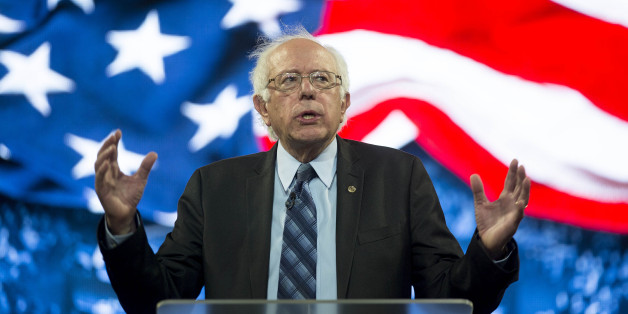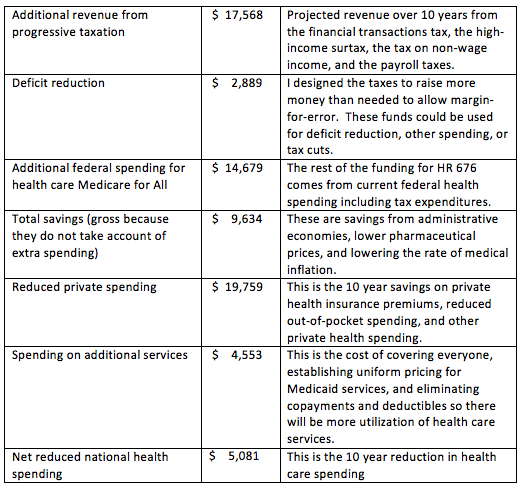Gerald Friedman Defends Medicare for All
As the Wall St Journal and Hillary Clinton
Attack Single Payer
Radio Presentation on KPFA
And Open Letter to Wall St Journal
Medicare for All is in the news. Both the Wall St Journal and Hillary Clinton are attacking it.
Gerald Friedman, the UMass economist and Board Member of Healthcare Now has been defending single payer.
On January 21 he spoke on KPFA radio for 25 minutes.
Attached below is Friedman's September 15 response to the Wall St Journal.
Please let us know if you have forwarded this alert.
___ I have forwarded this alert.
Thank you.
Don Bechler
Chair – Single Payer Now
Healthcare Now Board Member
415-695-7891
An Open Letter to the Wall Street Journal on Its Bernie Sanders Hit Piece
BLOOMBERG VIA GETTY IMAGESGerald Friedman's research was cited in a Wall Street Journal story about Bernie Sanders's proposals for government spending. Friedman responds to that story below.
It is said of economists that they know the cost of everything but the value of nothing. In the case of the article "Price Tag of Bernie Sanders's Proposals: $18 Trillion," this accusation is a better fit for the Wall Street Journal that published it.
The Journal correctly puts the additional federal spending for health care under HR 676 (a single payer health plan) at $15 trillion over ten years. It neglects to add, however, that by spending these vast sums, we would, as a country, save nearly $5 trillion over ten years in reduced administrative waste, lower pharmaceutical and device prices, and by lowering the rate of medical inflation.
These financial savings would be felt by businesses and by state and local governments who would no longer be paying for health insurance for their employees; and by retirees and working Americans who would no longer have to pay for their health insurance or for co-payments and deductibles. Beyond these financial savings, HR 676 would also save thousands of lives a year by expanding access to health care for the uninsured and the underinsured.
The economic benefits from Senator Sander's proposal would be even greater than these static estimates suggest because a single-payer plan would create dynamic gains by freeing American businesses to compete without the burden of an inefficient and wasteful health insurance system. As with Senator Sanders' other proposals, the economic boom created by HR 676, including the productivity boost coming from a more efficient health care system and a healthier population, would raise economic output and provide billions of dollars in additional tax revenues to over-set some of the additional federal spending.
Summary of 10-year projections
Because of the nearly $10 trillion in savings, it is possible to fund over $4.5 trillion in additional services while still reducing national health care spending by over $5 trillion. With these net savings, the additional $14.7 trillion in federal spending brings savings to the private sector (and state and local governments) of over $19.7 trillion.
Projected 10 year impact of HR 676 in billions
10-year estimates of spending with the current system and HR 676 (in $ billions):




No comments:
Post a Comment